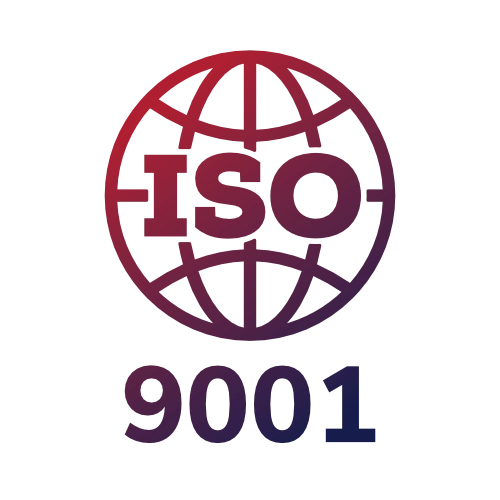
ISO 9001
Quality Management System
What is ISO 9001?
ISO 9001is the most widely recognized quality management standard in the world, used by companies of all sizes and across all industries.
Its goal is to ensure consistency, efficiency, and continuous improvement of processes that directly impact customer satisfaction and the quality of services or products.
The standard does not impose ready-made solutions. Instead, it provides a framework to help companies operate effectively, predictably, and in line with market expectations.
What Does ISO 9001 Cover?
A quality management system based on ISO 9001 focuses on:
- planning and standardizing internal processes
- identifying customer needs and operational risks
- measuring performance and implementing improvements
- increasing employee engagement and internal communication quality
- creating a cycle of continuous improvement (PDCA)
The ISO 9001 standard is based on seven quality principles, including customer focus, leadership, process approach, and data-driven decision-making.
Which Industries Use ISO 9001?
ISO 9001 can be implemented in any organization, regardless of industry. It is particularly useful for companies that:
- want to organize operations and eliminate recurring errors
- handle large volumes of clients and projects
- plan to grow or expand into foreign markets
- participate in public tenders or cooperate with large enterprises
- prioritize transparency and internal efficiency
Example sectors: manufacturing, logistics, construction, training, administration, marketing, education, food industry, IT services
Benefits of Implementing ISO 9001
Improved quality of products and services

Fewer errors, complaints, and delays

Higher customer satisfaction and better reviews

More effective management of resources and employees

Fulfillment of partner and public sector requirements

Increased trust and a more professional company image

ISO 9001 Implementation Stages
FAQ – Frequently Asked Questions
Is ISO 9001 mandatory?
No, but it is often required for participation in public tenders and cooperation with corporations.
Does ISO 9001 mean lots of paperwork?
No. Modern ISO approaches minimize bureaucracy and maximize efficiency. The system is tailored to your company’s reality.
Is the ISO 9001 certificate valid indefinitely?
No. It is valid for 3 years, with annual surveillance audits required.
Can ISO 9001 be combined with other standards?
Yes. It is commonly combined with ISO 27001 (information security) and ISO 22301 (business continuity) to form an integrated management system.
Request a Quote
Contact details








